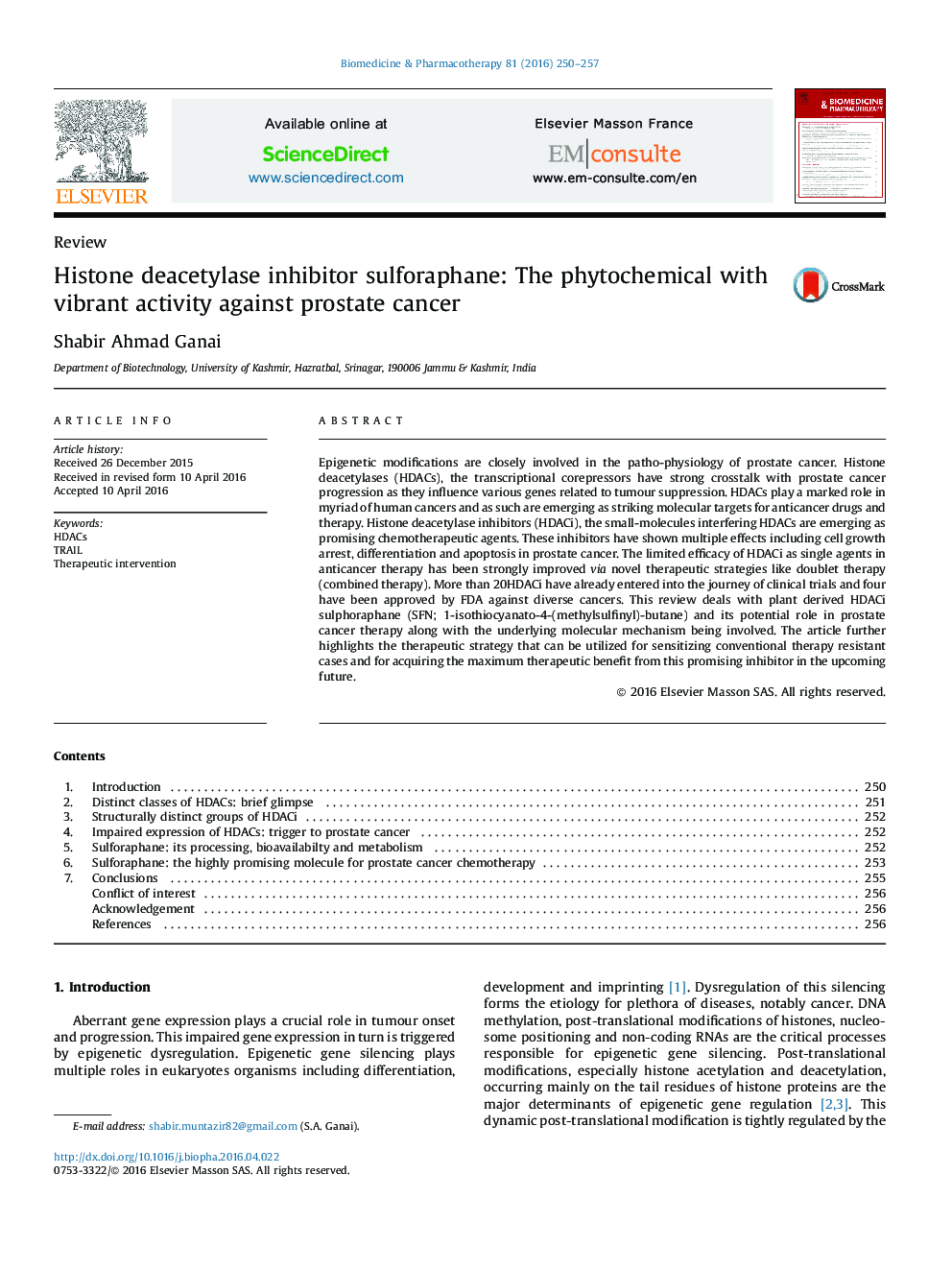| Article ID | Journal | Published Year | Pages | File Type |
|---|---|---|---|---|
| 2523662 | Biomedicine & Pharmacotherapy | 2016 | 8 Pages |
Epigenetic modifications are closely involved in the patho-physiology of prostate cancer. Histone deacetylases (HDACs), the transcriptional corepressors have strong crosstalk with prostate cancer progression as they influence various genes related to tumour suppression. HDACs play a marked role in myriad of human cancers and as such are emerging as striking molecular targets for anticancer drugs and therapy. Histone deacetylase inhibitors (HDACi), the small-molecules interfering HDACs are emerging as promising chemotherapeutic agents. These inhibitors have shown multiple effects including cell growth arrest, differentiation and apoptosis in prostate cancer. The limited efficacy of HDACi as single agents in anticancer therapy has been strongly improved via novel therapeutic strategies like doublet therapy (combined therapy). More than 20HDACi have already entered into the journey of clinical trials and four have been approved by FDA against diverse cancers. This review deals with plant derived HDACi sulphoraphane (SFN; 1-isothiocyanato-4-(methylsulfinyl)-butane) and its potential role in prostate cancer therapy along with the underlying molecular mechanism being involved. The article further highlights the therapeutic strategy that can be utilized for sensitizing conventional therapy resistant cases and for acquiring the maximum therapeutic benefit from this promising inhibitor in the upcoming future.
